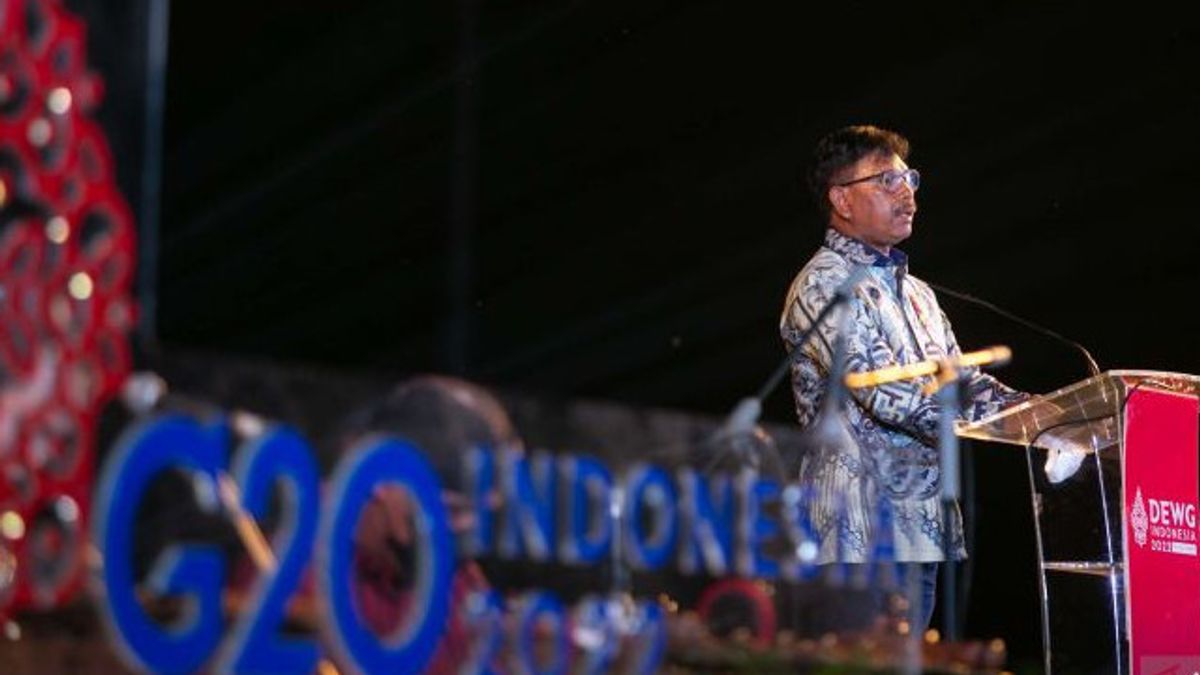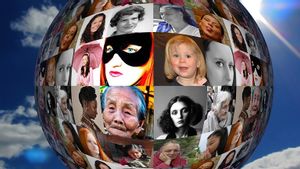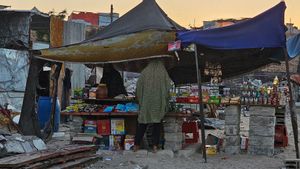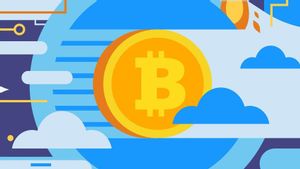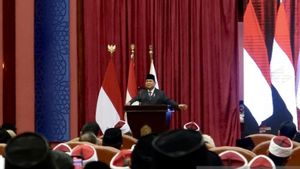JAKARTA - Even distribution of digital connectivity in all places in the world is now very important. For this reason, the Indonesian government uses Indonesia's G20 Presidency to encourage digitalization to be evenly distributed throughout the world.
Real support for equitable connectivity is realized through the Digital Economy Working Group, that digital connectivity is one of the priority issues to be discussed with G20 member countries at the forum.
It is not without reason that digital connectivity has become something that is very important to be discussed at the world level. Since the corona virus pandemic, the internet has become a non-negotiable necessity because it has proven to be very helpful for activities and the economy when physical activity is very limited.
When so much depends on the internet, in fact, there are still many people who don't have access. Data from the International Telecommunication Union (ITU) in 2021, quoted from the Ministry of Communications and Information Technology, shows that there are 2.9 billion people in the world who have never used the internet.
"Currently, technological advances are so rapid," said Minister of Communications and Informatics Johnny G. Plate, in a special interview with the editor of ANTARA some time ago.
In the midst of rapid technological developments, there are still countries that are building information and communication technology infrastructure so that all people can experience the benefits of the internet.
Broadly speaking, countries that joined the G20 consist of two groups. First, countries that are also members of the G7 are countries that are technology producers. They are Japan, Canada, France, Italy, Germany, United States and United Kingdom.
The second group consists of developing countries, which use technology. Indonesia is included in this second group.
The interests of these two groups are certainly different. The government is committed to being a "bridge" for these two groups so that the agreement on digital connectivity can be enjoyed by both member countries and the world.
"We want to put this on the negotiating table so that a common ground can be found, between the interests of the G7 industrial countries and the interests of third world countries, as technology users," said Johnny.
Digital Infrastructure in Indonesia
In Indonesia, the development of information and communication technology infrastructure is focused on 4G, the cellular network that is currently the most widely used in the world.
The development of 4G infrastructure includes the deployment of fiber optic cables and the construction of base transceiver station (BTS) towers.
For areas that cannot be connected to the telecommunications network via fiber optic cables, both from land and sea, the government is preparing satellite capacity and is also building the SATRIA-1 multifunction satellite along with its reserves.
The development of digital infrastructure in Indonesia in addition to prioritizing 4G, is also oriented towards 5G, a network that has been adopted on a limited basis in the country since 2021.
There are three aspects that must be considered regarding equitable connectivity, both in Indonesia and the world. First, the ICT infrastructure deployed must be connected to other countries. Connectivity basically can not stand alone.
Second, human resources that have adequate capabilities.
"How to increase the qualifications of digital human resources that can be adequate and qualified both in terms of qualifications and in numbers," said Johnny.
For example, Indonesia needs 9 million digital human resources in the 2015-2030 period. If divided per year, on average Indonesia needs 600.000 human resources who have digital skills.
Third, the availability of an adequate frequency spectrum. In this case, Indonesia is farming (adding) and refarming (rearranging) the radio frequency spectrum to provide 4G and 5G bandwidth.
Knowledge Exchange Event
The G20 Forum, in particular the Digital Economy Working Group, which discusses connectivity issues and post-COVID-19 recovery, serves as a venue for exchanging ideas and sharing experiences about what practices are carried out by member countries in equitable distribution of digital connectivity.
In this forum, the Indonesian government, represented by the Ministry of Communication and Informatics, encouraged discussions between technology-producing countries and technology users to find solutions to connectivity issues.
"There needs to be meeting points, yes, how the interests of producing countries meet the interests of consumer countries," said Johnny.
The DEWG forum is expected to be a place for exchanging information and knowledge on how the issue of equitable connectivity can be resolved.
SEE ALSO:
For example, through the exchange of information, practices carried out by Indonesia regarding infrastructure development and digital human resources could be adopted by other countries, which have the same case.
"These examples must be carried out by other countries as well so that digitalization at the G20 and throughout the world can run well," said Johnny.
The agreement that will be produced by this forum is not as binding as a law, however, it can be adopted by member countries according to their respective priorities into a regulation.
"This is where the importance of negotiating in the G20 agreements. Later, after that, it could take the form of regulations or multilateral cooperation and bilateral cooperation in the information sector," said Johnny.
The discussion of digital connectivity issues at the G20 DEWG is important, because the G20 forum is strategic in terms of how broad its influence is on the economy.
G20 member countries control 85 percent of the world economy and 79 percent of global trade. The coverage of the population of member countries of this forum is also wide, which is as much as 65 percent of the world's population.
The English, Chinese, Japanese, Arabic, and French versions are automatically generated by the AI. So there may still be inaccuracies in translating, please always see Indonesian as our main language. (system supported by DigitalSiber.id)
